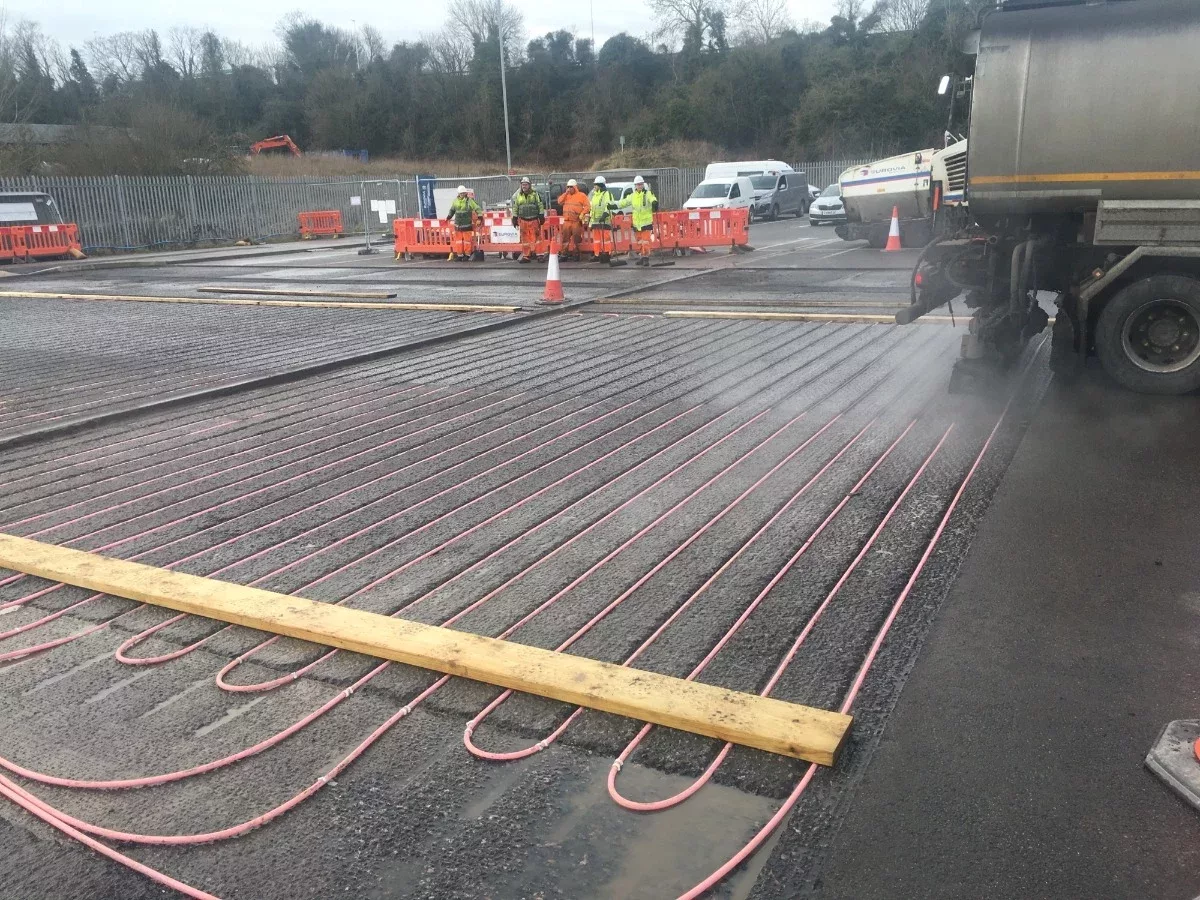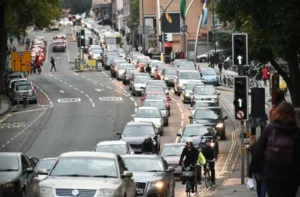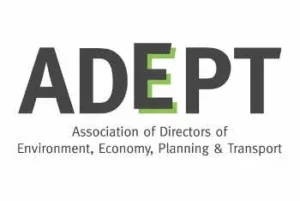Decarbonisation is the focus of the ADEPT (Association of Directors of Environment, Economy, Places and Transport) SMART Places Live Labs Programme’s fourth white paper
With the race to Net Zero truly on, local authorities are front and centre of achieving the government’s net zero targets. The white paper, Decarbonisation, showcases how the eight Live Labs are trialling new materials and technologies that can support councils across the country in delivering on their climate emergency declarations across local highways.
The UK Parliament declared a climate emergency in 2019, followed by the net zero by 2050 target and the 78% emissions reduction (compared to 1990 levels) by 2035. ADEPT believes the only way to meet these targets is through local programmes led by properly resourced local authorities. The Live Labs programme was designed to meet some of these challenges head on.
Individual trials have been focused on five key areas: sustainable materials, environmental monitoring, energy, digitalisation and communication, and mobility. The eight different Live Labs have taken a mixture of data driven and materials-led approaches, some of these include:
- Sustainable materials – Cumbria Live Lab has been working with both Shell and MacRebur to explore the use of recycled plastic materials in road surfacing. The Kent Live Lab has been trialling a graphene and recycled plastic mix.
- Environmental monitoring – Thames Valley Live Lab has been trialling the use of sensors to monitor air quality and Suffolk Live Lab has been using sensors to manage street lighting, providing accurate data that can be used to make real-time decisions.
- Energy – Central Bedfordshire has been trialling thermal roads to de-ice car parks, solar panels on roads and kinetic pavements to capture the energy created through pedestrian footfall to power LED notice boards and charge phones.
- Digitalisation and communication – the West Midlands Network Resilience Live Lab has been trialling video analytics to tackle congestion, increase the capacity and efficiency of the local road network, understand travel behaviour, and improve the ability to manage incidents.
- Mobility – Both Buckinghamshire and Staffordshire Live Labs have been trialling e-scooters to understand how they would be used and to drive modal-shift. Buckinghamshire has also been trialling e-bikes and undertaken an in-depth last mile mobility feasibility study, conducted by Connected Places Catapult.
Each Live Lab’s approach to decarbonisation has been shaped by local need, but the overarching aim of the programme is to develop off the shelf business cases that any local authority can use to assess the applicability of a technology to their area. These will cover all aspects of each trial from procurement, to skills and resources, through to location and deployment.
Decarbonisation is part of a series of white papers from the Live Labs programme. They aim to make learnings and insights available to industry as they happen, giving decision-makers the opportunity to capitalise on the work being done through the programme.
The two-year, £22.9million DfT-funded Live Labs programme grew out of a need to accelerate innovation across the local roads sector. This has rapidly developed to encompass use of data, SMART materials and energy, resulting in innovative pilots ranging from using drones and vehicle sensors to identify potholes to creating ‘travel personas’ to support behavioural change.
Neil Gibson, Chair of the Live Labs Commissioning Board, said: “With local authorities being at the forefront of delivering national net zero targets, the Decarbonisation White Paper is a timely and much needed publication. One of the Live Labs programme’s core aims is to provide local government, with practical, achievable innovations that they can take off the shelf and know will work in their area. For too long, local roads have been regarded as a poor relation to the Strategic Road Network, yet they are the backbone of the country’s transport system. If we cannot reduce carbon across our local roads network, we will miss our targets, it is as simple as that. Live Labs is showing that innovation, when properly resourced, is both possible and realisable.”
Giles Perkins, Live Labs Programme Director said: “With the challenges that face us all with climate change, particularly how we develop a resilient local road network, this White Paper illustrates the breadth of decarbonisation initiatives that are being undertaken across the Live Labs. These illustrate the incremental gains that can be made by embedding climate thinking in everything we do and the learnings from our suite of high applicable and repeatable interventions will be shared over the coming months”.
ADEPT represents local authority, county, unitary and metropolitan Directors. The Live Labs initiative is part of ADEPT’s SMART Places programme to support the use of digital technology in place-based services.
The eight Live Labs are being led by Buckinghamshire Council, Central Bedfordshire Council, Cumbria County Council, Reading Borough Council, Suffolk County Council, alongside joint projects by Solihull Council and Birmingham City Council (West Midlands), and Kent and Staffordshire County Councils. The programme is supported by project partners SNC-Lavalin’s Atkins business, EY, Kier, O2, Ringway and WSP.





















